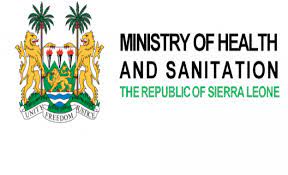By Iyemah David
Civil Society Organisations (CSOs) from African countries have called on the Sierra Leone Government to expedite the establishment of a Public Health Emergency Agency.
They made the call on Wednesday, in Abuja, at the Africa Regional Advocacy Summit for NGOs and Media organised by the Africa Health Budget Network (AHBN).
The three-day event has a theme; “Capacity Building, Peer Learning and Exchange on Accountability for Domestic Resource Mobilization for Health Security and Systems in Africa.
The summit had in attendance participants from Cameroon, Kenya, Malawi, Nigeria, Sierra Leone, Senegal, Uganda and Zimbabwe.
Coordinator of the AHBN, Dr Aminu Magashi Garba said that in response to the ongoing global health crisis and the need for a more robust healthcare system, there should be a dedicated institution to effectively respond to public health emergencies in the country.
Dr Magashi urged the Sierra Leone government to prioritise this initiative.
He delved into the reasons behind the coalition’s plea and highlights the potential benefits of establishing such an agency in Sierra Leone.
“The outbreak of the COVID-19 pandemic has shed light on the vulnerabilities of healthcare systems worldwide, including in Sierra Leone.
“As the country continues to grapple with the impact of infectious diseases, advocating for the establishment of a Public Health Emergency Agency has become necessary,” he said.
Mrs Chika Offor, the Chair of, the Health Sector Reform Coalition (HSRC), said that one of the key reasons behind the coalition’s plea was the need for a centralized and coordinated approach to managing public health emergencies.
“Currently, the responsibility for handling such emergencies falls on various government departments and agencies, resulting in a fragmented and less efficient response.
“By establishing a dedicated agency, Sierra Leone can ensure a more streamlined and effective response to future health crises,” she said.
Offor said that moreover, the coalition argued that a Public Health Emergency Agency would enhance preparedness and response capabilities.
“The agency could be responsible for developing and implementing comprehensive emergency response plans, conducting regular drills and simulations, and coordinating with international partners to access resources and expertise.
“This proactive approach would help Sierra Leone better anticipate and mitigate the impact of future public health emergencies,” she said.
Also speaking, Project Officer for Health Alert Serria Leone (HASIL), Mr David Aliyu, said that the establishment of a Public Health Emergency Agency would strengthen public trust and confidence in the government’s ability to handle health crises.
Aliyu said that with a dedicated institution solely focused on public health emergencies, citizens would have a clear point of contact and a sense of assurance that their well-being is being prioritised.
Earlier, Health Economist/Monitoring & Evaluation Specialist of AHBN, Mrs Maimuma Abdullahi highlighted the objectives of the Summit to include: Enhancing the capacity of delegates on budget analysis, budget advocacy, accountability and transparency for Domestic Resource
Mobilisation (DRM) concerning health security.
Among others, she said was to promote peer learning and exchange among country delegates on Accountability for Domestic Resource Mobilisation for Health Security and Systems in Africa.
“Revising and adopting country work plans based on the project subgrants agreements,” she said.
Mrs Abdullahi said the project was funded by Ford Foundation through Africa Health Budget Network (AHBN) in eight targeted African countries to promote accountability for COVID-19 and equitable access recovery.
She lamented that accountability for COVID-19 funds remained a big challenge as well as inadequate access to public information regarding the government’s
COVID-19 spending, and financial support for COVID-19 through global and
regional financial institutions and donors.
She also disclosed that the Summit aimed to strengthen accountability for COVID-19 Finances and Vaccine Access in Africa adds that the amount earmarked and provided so far was $200,000 in the eight countries.




